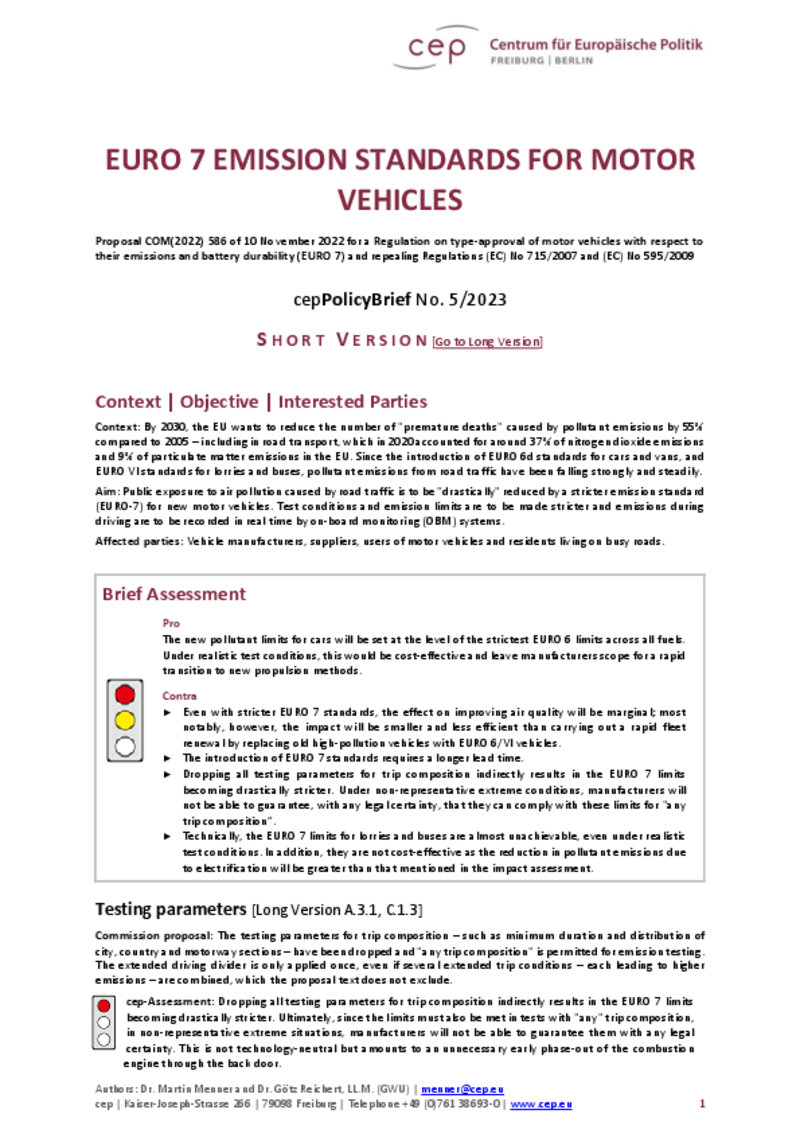
Climate
Euro 7 Emission Standards for Motor Vehicles (cepPolicyBrief)
cepPolicyBrief
"Due to the current EURO 6d/VI limits and increasing registrations of electric vehicles, traffic-related pollutant emissions will continue to fall sharply," says cep expert Martin Menner, who has studied the effects of the Brussels proposal. According to the study, the effect of very strict Euro 7 standards on improving air quality would be marginal. Above all, however, it would be smaller and less efficient than an accelerated fleet renewal – possibly supported by incentives – via replacement of old pollutant-intensive vehicles with EURO 6d/VI vehicles. According to Menner, stricter emission limits even slow down fleet renewal due to higher purchase prices.
In addition, the deletion of any test conditions for passenger cars and vans indirectly leads to a further drastic tightening of the Euro 7 limits, these being described by the Commission as "moderate". This is not technology neutral. Only after the introduction of realistic test conditions and sufficient lead time would the emission limits for passenger cars actually be moderate. "The mandatory onboard monitoring systems are unnecessary and disproportionately expensive, especially for small cars, leading to a thinning out of model diversity. For heavy vans, the emission limits cannot be met, so that many vans that are important for distribution transport and tradesmen can no longer be offered economically as internal combustion vehicles," emphasizes the cep expert.
The emission limits for trucks and buses are technically hardly feasible even under realistic test conditions, he says. "They are too strict and not cost-efficient. This is because the Commission's impact assessment on Euro-7 does not take into account that the estimated share of newly registered e-vehicles will increase from 10.5% to 35% in 2030 as a result of the planned stricter CO2 limits alone. The positive effect of this accelerated drivetrain transition on the reduction of pollutants is therefore blatantly neglected," explains Menner.




